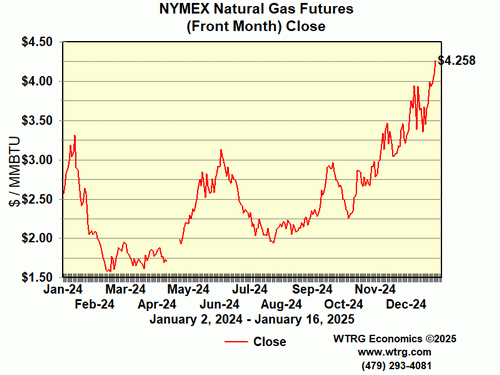Thanks for the link. Typos are always possible but your link does NOT disagree with text I quoted:This statement appears to be a typo: Through 2013, AT&T anticipates it will have purchased up to 8,000 CNG vehicles ... That date is actually 2018 according to AT&T.
http://www.att.com/gen/corporate-citizenship?pid=17899 ...
Your link: “a 10-year commitment to invest up to $565 million to deploy approximately 15,000 alternative-fuel vehicles (AFVs) through 2018. “
My link: “Through 2013, AT&T anticipates it will have purchased up to 8,000 CNG vehicles at an estimated cost of $350 million.”
I.e. my link plans $35E7 spent over two years for 8E3 CNG vehicles or ~$4.4E4 = $44,000 per vehicle.
Your link plans $56.5E7 spent over ten years for 15E3 AVF vehicles or ~$3.77E4 = $38,000 per vehicle.
I would assume this implies that the cost of at least CNG vehicles is expected to drop, as volume of production increases.
Thus I see no reason to assume the 2013 in my link is a typographical error. What is your reason for thinking it is?
Your link also states AT&T´s program will:
“Reduce carbon emissions by 211,000 metric tons over the 10-year deployment period — the equivalent to removing the emissions from more than 38,600 traditional passenger vehicles for a year.
And
“The use of compressed natural gas (CNG) vehicles in our corporate vehicle fleet helped the company avoid the purchase of more than one million gallons of traditional petroleum fuel in 2010.”
And that AT&T:
“Had deployed more than 3,400 CNG vehicles and more than 1,600 hybrid electric vehicles by start of 2012.”
Note CNG buying was more than twice the EV buying.
I expect it will soon be (if not now) a 3 to 1 ratio as cost of CNG has fallen so much - In last year alone approximately by 50%! See graph:

Note that it is winter and stored reserves of NG are less than average. Also most of the fracking production of NG has been haulted - not profitable to produce. The drill rigs are moving to where there is more oil or at least NG liquids in the shale. The huge increase in CONVENTIONAL (AND CHEAPER) NG production has not yet entered the market - when it does, even with the cost of ocean transport added, the price at the henry hub should fall below $2/ million BTU.
Last edited by a moderator:



